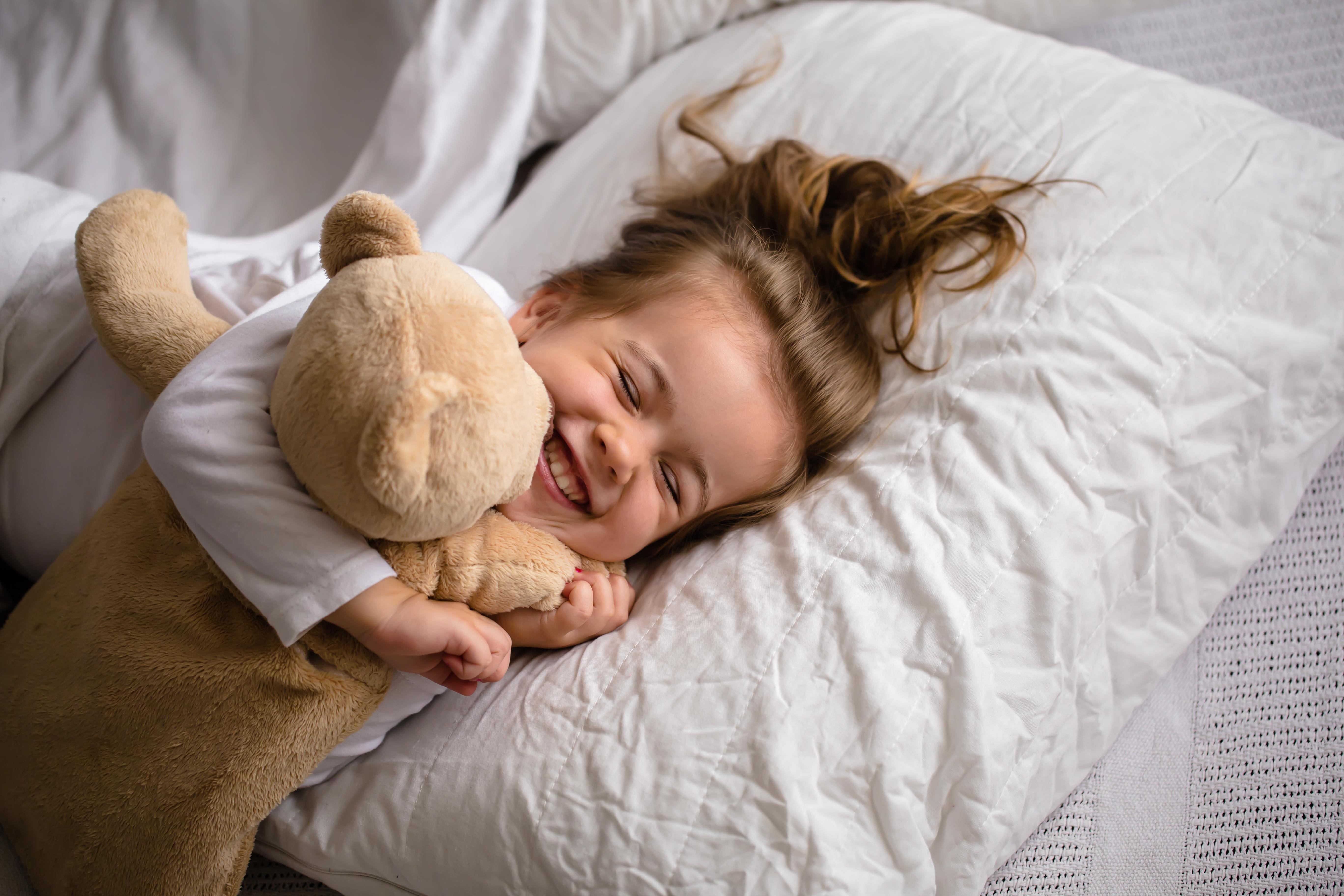Is your child sleeping enough?

The American Academy of Pediatrics (AAP) has endorsed the guidelines set by the American Academy of Sleep Medicine (AASM) in terms of the recommended duration of sleep for children including naps. For infants 4-12 months old: 12-16 hours; children 1-2 years old: 11-14 hrs; 3-5 years old: 10-13 hours; 6-12 years old: 9-12 hours; 13-18 years old: 8-10 hours. Once the recommended amount of sleep is achieved on a regular basis, it would lead to improved attention, learning, emotional, mental and physical well-being.
Alarmingly, in a survey done by the Center for Disease Control and Prevention (CDC) in 2015, approximately two-thirds of U.S. High School students were noted to be sleep deprived. They pointed out that children not getting enough sleep are at increased risk for accidents or injuries; chronic diseases such as diabetes, hypertension or obesity; mental health problems such as depression or anxiety; attention and behavioural problems; and poor school performance.
There are different causes of sleep deprivation. These are sleep apnea (recurrent episodes of upper airway obstruction during sleep that leads to reduced or absent breathing), restless leg syndrome (characterized as an unpleasant sensation in lower legs or sometimes the arms that happens during rest and causes daytime sleepiness), narcolepsy (excessive daytime sleepiness sometimes combined with sudden muscle weakness triggered by strong emotion); delayed sleep-wake disorder (wherein functional impairment occurs in adolescents when there's a mismatch in the preferred sleep time and social demands such as schoolwork) and insomnia (inability to initiate or maintain sleep) to name a few. But the most common cause is poor sleep hygiene.
Sleep hygiene is modifiable behavioural or environmental factors that affect sleep.

How should one practice a good sleep hygiene?
- Establish a bedtime routine
Give your child a warm bath or shower within an hour before bedtime.
Avoid giving caffeine or caffeine-containing products such as chocolates/soda/energy drinks; a heavy or spicy meal within 4 hours before bedtime. Instead, provide a light snack (milk, cracker/toast or fruit) within 2 hrs before bedtime.
Allow strenous exercise during daytime and slow, meditative exercises such as yoga in the afternoon or night.
Avoid using TV or any electronic devices to try to make your child fall sleep, instead read books with soothing stories.
2. Maintain a consistent sleep schedule
Make sure your child sleeps at the same time each night and wake up at the same time each day. Avoid staying up late and sleeping in during the weekends.
Daytime naps should not exceed 45 minutes.
Set your child's biological clock by exposing your child to sunlight early in the morning.
3. Create a favourable sleep environment
Make your child's bed and bedding comfortable. Utilize soothing scents such as lavender or chamomile to help them fall asleep.
Use the bed only for sleeping and not for watching TV or playing games with toys or electronic devices.
Keep the bedroom comfortably cool to promote sleep and reduce sweating. Just keep a blanket handy in case the room temperature drops too low.
4. Stay away from sleep disruptors
Block out loud noises, instead, make your child listen to relaxing sounds.
Remove TV and other electronic devices out of the bedroom. Turn off all the lights inside the bedroom. The blue light emitted by electronic devices and fluorescent or LED light is noted to have 2 effects: First, it decreases or delays the body's production of melatonin, the hormone that makes people sleepy. Second, it reduces the duration of slow-wave and rapid eye movement during sleep which is vital in mental functioning.
If sleep is still a struggle for your child and it interferes with their daily functioning, consider consult with a doctor
Dr Cynthia, a member of the Philippine Medical Association since 2001, completed her training as a general paediatrician in 2005 and was inducted as a diplomat of the Philippine Pediatric Society in 2009. Prior to coming to Vietnam in 2011, she was a pediatric consultant in several tertiary hospitals in the Philippines. She is a certified provider of Basic Life Support (BLS), Advanced Cardiac Life Support (ACLS) and Pediatric Advanced Life Support (PALS). She loves to travel and read books in her spare time.

For further information/booking appointment:
☎️024 3843 0748 (24/7)
📩hanoi@vietnammedicalpractice.com
 본 웹사이트는 사용자 경험을 향상을 위해 쿠키를 사용하고 있습니다.
본 웹사이트는 사용자 경험을 향상을 위해 쿠키를 사용하고 있습니다.